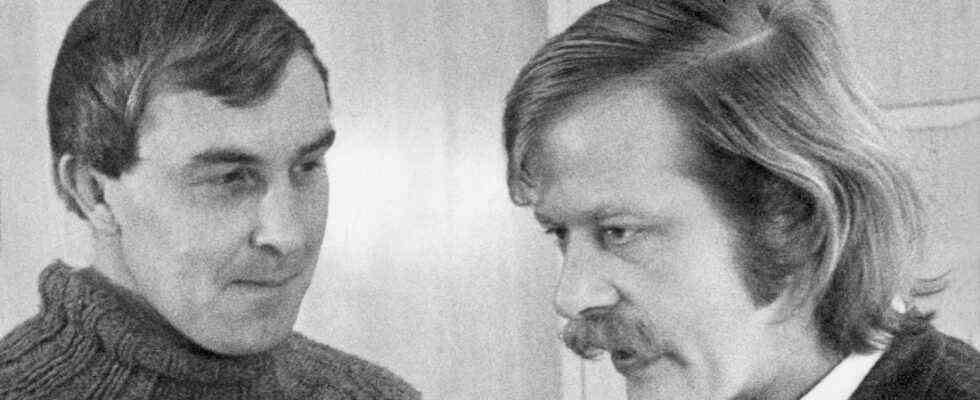Harald Mueller once had a great time in the theater as a dramatist. That was at the beginning of the seventies when his debut piece “Großer Wolf” became an insane success. And then again in the mid-eighties, when his atomic end-of-life piece “Totenfloß” became an even greater, namely also international, success. After that, less was heard from the man who responded in his texts to current, often local political issues and contemporary issues. He is one of those examples of the fast hype and fading stars that sometimes exist in art and culture, and of the fact that not everyone who is embraced by the theater has to find their destiny there. As an author, Harald Mueller was more likely to be assigned to political commercial theater.
He was born on May 18, 1934 in Memel, East Prussia. From there the family fled to Schleswig-Holstein in 1945. After completing secondary school, Mueller had jobs that enriched his life as a miner, lift boy, receptionist and trade fair representative. In 1955 he attended the drama school of the Hamburger Kammerspiele and then the drama school Zerboni in Munich and studied German and theater studies. He worked as a television and radio play writer and from 1962 on as a reciter. For his debut play “Großer Wolf”, about a marauding gang of children, he received a scholarship for young playwrights from Suhrkamp Verlag – not least thanks to support from Martin Walser.
Mueller also worked as a translator and was dramaturge at the Schillertheater from 1971 to 1974
The premiere of this hotly debated piece at the Münchner Kammerspiele, directed by the young Claus Peymann, gave Mueller his breakthrough in 1970. His second piece “Halbdeutsch”, premiered by Karl Paryla, followed in the same year in the same place, but with less success. Mueller also worked as a translator (for Suhrkamp he translated Bernard Shaw into German) and was dramaturge at the Berlin Schillertheater from 1971 to 1974. Then he withdrew from the cultural business on the island of Sylt. To cause a furore again in the eighties with his dystopia “Totenfloss”.
“Totenfloß” sketches an apocalyptic end-of-time scenario in atomically contaminated Germany in the year 2050. Four doomed human cripples float on a raft down the Rhine to Xanten, the last place free of radiation. There they hope for a chance of survival. The piece’s premiere in Oberhausen in 1984 was not noticed at all; George Tabori staged it the following year at the Münchner Kammerspiele. But it was only after the Chernobyl accident in 1986 that “Totenfloß” became the trend. Mueller wrote a new version that came out in October 1986 in three theaters simultaneously (in Basel, Düsseldorf and Stuttgart). It was voted “Piece of the Year” and, translated into twelve languages, was also played a lot abroad. After that it became quiet again about the Zeitstück author Harald Mueller. With other works such as “Bonndeutsch” (1987) or “Luther Rufen” (1996) he could no longer build on his two great successes. As his family announced, Mueller died on Monday after a prolonged heart disease at the age of 87.

